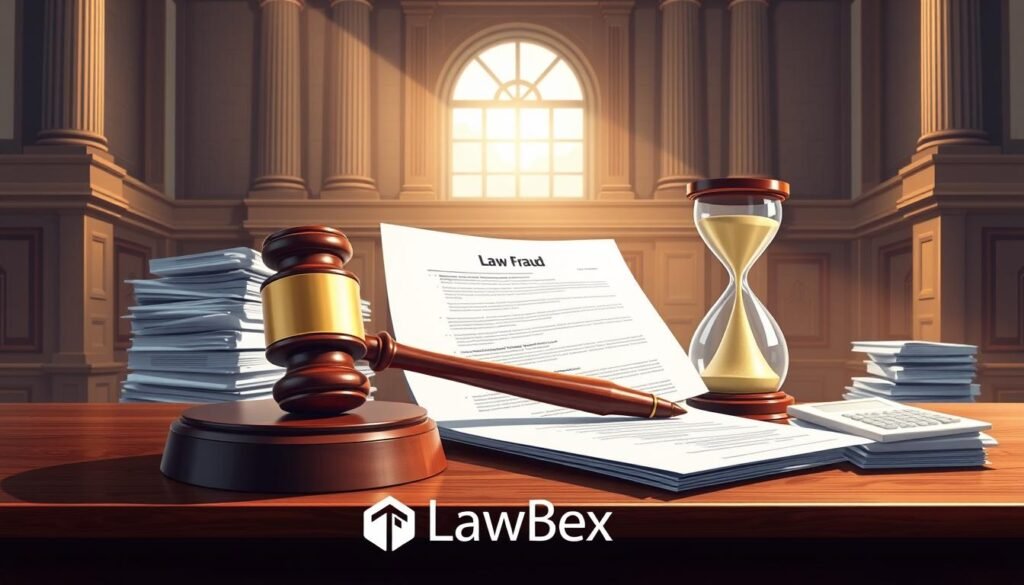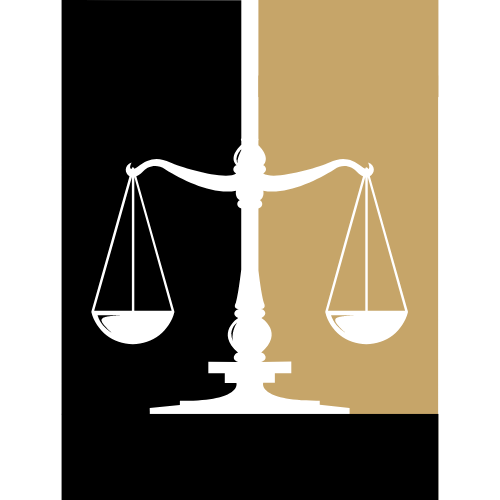Ever thought about what tax fraud is and its harsh offenses and penalties? This detailed article will explore tax fraud, its various forms, and the IRS’s penalties. We’ll also look at how to follow tax laws to avoid trouble. Get ready to learn about the secret world of tax evasion and its effects on people and businesses.
Key Takeaways
- Understand the different types of tax fraud, including underreporting income, offshore tax evasion, and fraudulent tax deductions.
- Learn about the severe penalties for tax fraud, including fines and imprisonment.
- Discover the differences between civil and criminal tax violations and how they are handled.
- Explore strategies for avoiding tax fraud and maintaining compliance with tax laws.
- Familiarize yourself with the statute of limitations for tax fraud and the consequences of tax fraud convictions.
Understanding Tax Fraud
Tax fraud is a serious crime. It happens when people lie on their tax returns to pay less in taxes. The tax fraud definition covers many types of tax fraud. Each has its own rules and punishments.
It’s important to know the difference between intentional tax fraud and unintentional tax mistakes. The outcomes can be very different.
What Constitutes Tax Fraud?
Tax fraud is when someone on purpose gives false info or leaves out important details on their tax forms. This can be hiding income, claiming too many deductions, or not filing at all. The main thing that makes it fraud is wanting to avoid paying taxes.
Intentional vs. Unintentional Violations
- Intentional tax fraud is a crime that can lead to big fines and jail time. It’s when someone clearly tries to trick the IRS to pay less taxes.
- Unintentional tax mistakes happen when people get things wrong due to confusion or not understanding tax laws. These mistakes can still have penalties, but there’s no intent to cheat.
It’s key to tell intentional from unintentional tax errors. This decides how to handle it and what might happen next. Knowing about tax fraud helps avoid big problems and keeps you in line with the law.
Common Types of Tax Fraud Offenses
Tax fraud is a broad term for illegal activities in the tax world. It includes tax evasion, failure to file tax returns, and more. These actions can lead to big fines, jail time, and damage to your reputation.
tax evasion is a big one. It means hiding income or claiming false deductions to pay less in taxes. This can be done in many ways, like not reporting cash or hiding money in offshore accounts.
Not filing tax returns on time is another common crime. It’s a legal duty to file on time. Not doing so can result in big penalties and even jail.
| Types of Tax Fraud Offenses | Description |
|---|---|
| Fraudulent Tax Deductions | Claiming false or exaggerated deductions to reduce the amount of taxes owed |
| Payroll Tax Fraud | Failing to withhold or remit payroll taxes, or misclassifying employees as independent contractors |
Fraudulent tax deductions and credits are also common. People or businesses claim deductions or credits they shouldn’t to pay less in taxes.
payroll tax fraud is serious. It’s about not paying payroll taxes or calling employees independent contractors to avoid taxes.
Knowing about tax fraud and its effects is key. It helps individuals and businesses stay on the right side of tax laws. This way, they avoid big penalties and legal trouble.
Tax Evasion: A Serious Crime
Tax evasion is a serious crime that involves cheating on taxes. It includes two main types: underreporting income and offshore tax evasion. Knowing the legal consequences and penalties is key to following tax laws.
Underreporting Income
Underreporting income is a common tax evasion method. It means not telling the full truth about how much money you make. This action hurts the government and the tax system’s trustworthiness.
People caught underreporting income face big penalties. These can include fines and even jail time.
Offshore Tax Evasion
Offshore tax evasion hides money in foreign places to avoid taxes. This can include using offshore bank accounts or shell companies. It’s a serious crime because it cheats the government and hides illegal money.
| Type of Tax Evasion | Description | Potential Penalties |
|---|---|---|
| Underreporting Income | Intentionally omitting or misrepresenting the full amount of income earned | Fines, imprisonment |
| Offshore Tax Evasion | Hiding assets or income in foreign jurisdictions to avoid paying taxes | Fines, imprisonment, asset seizure |
Tax evasion, whether through underreporting or offshore schemes, has serious consequences. Those caught can face big fines, long prison sentences, and losing their assets. It’s important for everyone to understand the seriousness of these crimes and follow tax laws.
“Tax evasion is a crime that not only harms the government, but also undermines the fairness of the tax system for all law-abiding citizens.”
Failure to File Tax Returns
Failing to file tax returns is a form of tax fraud. The IRS can hit you with both civil and criminal penalties. This is true whether it’s intentional or not.
Not filing tax returns is a big deal. It’s considered tax fraud even if you don’t owe taxes. The penalties can be huge, including fines and jail time.
- There’s a penalty of 5% of unpaid taxes for each late month, up to 25%.
- The IRS can also throw you in jail for up to a year for each year you don’t file.
Even if you don’t owe taxes, you must still file a return. Not doing so is tax fraud. It can lead to serious penalties.
“The failure to file a tax return is often the first step down the path to more serious tax-related crimes.”
Sometimes, not filing is an accident. Maybe you’re dealing with a big life change. In these cases, the IRS might be more understanding. But, you’ll still face penalties and interest on any tax debt.

To avoid trouble, file your tax returns on time. Even if you don’t owe taxes. Getting help from a tax pro can also keep you out of trouble with tax fraud penalties.
Fraudulent Tax Deductions and Credits
Tax fraud often means claiming false or inflated deductions and credits. This is done to lower one’s tax bill and keep more money. But, it can lead to serious legal trouble.
One common trick is claiming personal expenses as business costs. This includes car payments, cell phone bills, and even entertainment and travel. Some also claim higher values for donations they never made.
- Fraudulent tax deductions can include claiming personal expenses as business deductions
- Inflating the value of charitable contributions or claiming donations that were never made
- Fabricating home-office expenses or other unreimbursed business costs
- Falsely claiming tax credits, such as the Earned Income Tax Credit or Child Tax Credit
Another scheme is making up home-office expenses or other business costs. Some also try to claim tax credits they don’t qualify for, like the Earned Income Tax Credit or Child Tax Credit.
| Type of Fraud | Examples | Potential Consequences |
|---|---|---|
| Fraudulent Tax Deductions |
|
|
| Fraudulent Tax Credits |
|
|
Claiming fraudulent tax deductions or fraudulent tax credits is a serious crime. It can lead to fines and even jail time. Always follow the law when filling out your tax return.
Payroll Tax Fraud
Payroll tax fraud is a big problem for employers. They must handle their employees’ tax withholdings carefully. If they don’t, they face big penalties and legal trouble.
Employer Responsibilities
Employers must take out federal income tax, Social Security, and Medicare from their employees’ pay. They then have to send this money to the IRS regularly. If they don’t, or if they don’t send enough, it’s payroll tax fraud.
They also need to give employees correct W-2 forms. These forms show how much money was earned and how much tax was taken out. If they lie on these forms, it’s another kind of tax fraud with serious legal issues.
- Withhold federal income tax, Social Security, and Medicare taxes from employee paychecks
- Remit withheld funds to the IRS on a regular basis
- Provide accurate W-2 forms to employees, reporting total wages and taxes withheld
Employers who commit payroll tax fraud can get hit with fines, interest, and even face criminal charges. It’s very important for businesses to know and do their employer responsibilities to avoid these harsh penalties.

“Failing to remit payroll taxes is a serious offense that can have dire consequences for both the employer and their employees.”
Tax Fraud: Offenses and Penalties
Tax fraud has serious consequences. The IRS takes it very seriously. Knowing about tax fraud offenses and tax fraud penalties is key. It helps individuals and businesses stay compliant and avoid IRS penalties.
Tax fraud can happen in many ways. This includes not reporting all income, claiming false deductions, or not filing tax returns. The IRS can impose both criminal and civil penalties. Criminal penalties can include jail time and big fines. Civil penalties are usually just money fines.
- Criminal tax fraud can mean up to five years in jail and a $250,000 fine for people or $500,000 for companies.
- Civil penalties can be 75% of unpaid taxes or a 20% accuracy-related penalty, depending on the case.
In criminal cases, the IRS must prove fraud beyond doubt. In civil cases, they only need clear and convincing evidence. Not knowing tax laws might be a defense, but beliefs must be reasonable.
“Tax fraud can cause huge financial and legal problems. It’s important to follow tax laws to avoid severe penalties.”
For individuals and businesses, understanding tax fraud offenses and tax fraud penalties is vital. It helps keep finances safe and avoids IRS penalties. By knowing the rules and following them, you can avoid the serious effects of tax fraud.
Civil vs. Criminal Tax Violations
It’s important to know the difference between civil and criminal tax violations. These have different outcomes. Let’s look at the main differences between these two types of tax fraud offenses.
Understanding the Differences
Civil tax violations happen when someone makes mistakes or is careless with their taxes. These civil tax violations might lead to penalties, interest, and changes in what you owe. But, you won’t face criminal charges. On the other hand, criminal tax violations are when someone on purpose cheats on their taxes. This can include hiding income, lying about deductions, or hiding money in other countries. These tax fraud penalties can be very harsh, including big fines and jail time.
- Civil tax violations: Unintentional errors or negligence, resulting in penalties and adjustments.
- Criminal tax violations: Willful and intentional acts of tax fraud, leading to fines and imprisonment.
Whether to charge someone civilly or criminally depends on the case. The IRS and the Department of Justice team up to catch and punish serious tax cheats. They make sure those who cheat on taxes face the right punishment.

Knowing the difference between civil tax violations and criminal tax violations is key. It helps taxpayers follow the law and avoid the bad effects of tax fraud. By staying informed and getting help from experts, people and businesses can handle their taxes well.
IRS Penalties for Tax Fraud
The IRS is very strict about tax fraud. They use IRS penalties to stop people from cheating on taxes. These penalties can be civil tax penalties or criminal tax penalties, depending on the crime.
For tax fraud, the IRS can give big fines and even jail time. The exact penalty depends on the crime. But, it can include:
- Fines of up to 75% of the unpaid taxes for civil tax fraud
- Criminal penalties, like up to 5 years in prison, for willful tax evasion
- Penalties for not filing tax returns, from 5% to 25% of the unpaid taxes
- Charges for fake tax deductions and credits, leading to back taxes, interest, and penalties
The IRS can also go after both civil tax penalties and criminal tax penalties for the same crime. This makes the consequences even worse for those caught cheating on taxes.
In the end, the penalties for tax fraud are very harsh. It’s very important for taxpayers to report their income and deductions correctly to the IRS.
Statute of Limitations for Tax Fraud
When it comes to tax fraud cases, there’s a specific time frame for the IRS to act. This is called the statute of limitations. Knowing this time frame is key, as it shows when the IRS can start legal actions.
The usual time limit for tax fraud is six years after the tax return is filed. This gives the IRS six years to investigate and start legal actions against those suspected of tax fraud. But, several things can change this time, including:
- Concealment of income or assets: If the IRS finds out the taxpayer hid income or assets, the time limit goes up to ten years.
- Failure to file tax returns: If someone doesn’t file a tax return, the IRS can keep investigating forever.
- Foreign bank accounts: For cases involving unreported foreign bank accounts, the time limit is six years from when the IRS finds out about the account.
It’s also important to know that the time limit can be paused or extended in some cases. This can happen during an IRS investigation or if the taxpayer lives outside the U.S. Talking to a tax professional can help understand these rules better.

Dealing with tax fraud and its statute of limitations can be tough. But, knowing the key factors that affect the timeline can help. This way, taxpayers and businesses can get ready for IRS investigations and handle tax issues before they get worse.
Consequences of Tax Fraud Convictions
Tax fraud convictions can lead to serious problems for both individuals and businesses. The penalties include big fines and even jail time. It’s important to understand these legal and financial consequences to stay compliant with taxes.
Fines and Imprisonment
Those found guilty of tax fraud may face big fines and jail. The exact penalties depend on the crime’s nature and size. Fines can go up to $250,000 for people and $500,000 for companies.
Also, tax fraud convictions can lead to up to five years in federal prison. This shows how serious these crimes are.
| Offense | Fines | Imprisonment |
|---|---|---|
| Tax Evasion | Up to $250,000 (individuals) or $500,000 (corporations) | Up to 5 years |
| Failure to File Tax Returns | Up to $100,000 (individuals) or $200,000 (corporations) | Up to 1 year |
| Fraudulent Tax Deductions and Credits | Up to $250,000 (individuals) or $500,000 (corporations) | Up to 3 years |
The effects of a tax fraud conviction can be very hard, both financially and personally. It’s crucial for individuals and businesses to follow tax laws to avoid these harsh penalties. This helps protect their reputation and future opportunities.
Avoiding Tax Fraud: Best Practices
To avoid the serious problems of tax fraud, it’s important to know and follow tax laws. We’ll share the top ways for individuals and businesses to stay tax compliant. This includes keeping accurate records, getting expert tax planning advice, and setting up strong controls.
Good tax preparation is key to avoiding tax fraud. Keep detailed records of all money matters, like expenses and income. Also, talk to tax experts to make sure you’re getting all the deductions and credits you can.
- Regularly check your tax filings for mistakes and missing info.
- Keep up with new tax laws and rules.
- Use strong controls to protect your financial records from unauthorized access.
Getting help from tax experts is vital for dealing with tax system complexities. Work with a trusted tax planning pro who can give you tailored advice and help you stay on track.
“Proactive tax compliance is the best defense against the risks of tax fraud.”
By following these tips, you can protect your money and dodge the harsh penalties of tax fraud. Always stay informed and careful to keep a good relationship with the IRS.

TYPES OF CYBERCRIME: UNDERSTANDING DIGITAL THREATS
Conclusion
We’ve explored tax fraud deeply, learning about the different crimes and the harsh penalties from the IRS. We now understand the legal side and how to follow tax laws. This helps us deal with the tax system’s complexities and stay on the right side of the law.
As we’ve seen, tax fraud includes many actions, like hiding income or using secret bank accounts. Even mistakes can lead to fines. So, it’s crucial to be careful and accurate with our taxes. This way, we protect our money and fulfill our civic duties.
Looking ahead, we must keep focusing on following tax laws and making the tax system fairer. Knowing the seriousness of tax fraud and its effects helps us make smart choices. We can seek expert advice and help build a society that values honesty and follows the law.
